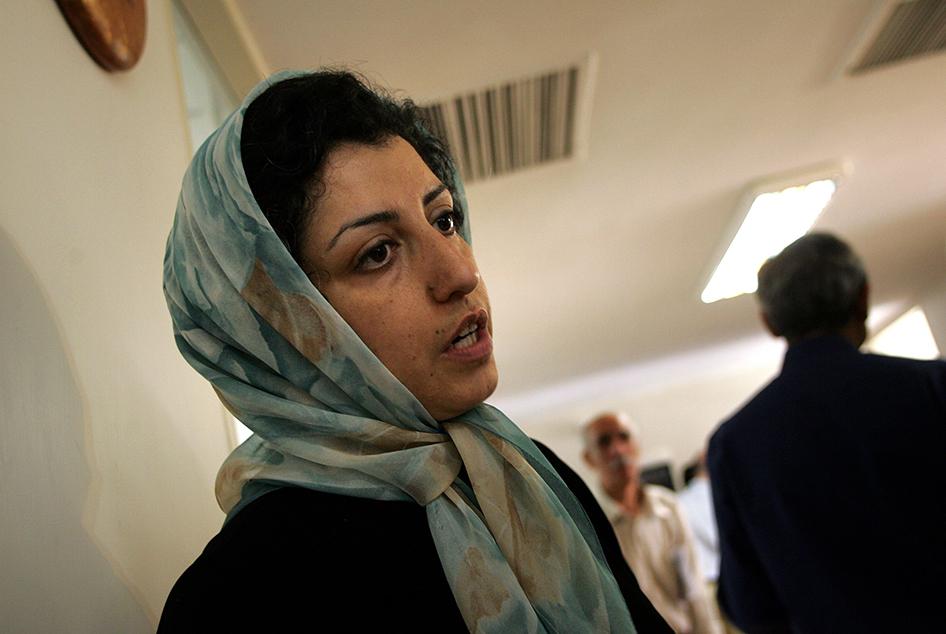
Iran’s revolutionary court has confirmed a 10-year prison sentence for a prominent human rights defender. Authorities have held the rights defender, Narges Mohammadi, who suffers from a severe medical ailment, in Evin prison in Tehran since June 2015.
Branch 36 of Tehran’s revolutionary court of appeal confirmed the sentence on September 28, 2016, said Mahmoud Behzadi, Mohammadi’s lawyer. This original verdict, handed down by Judge Abolghassem Salavati in Branch 15 of Tehran’s revolutionary court of first instance on May 18, sentenced Mohammadi to one year in prison for “propaganda against the state,” five years for “assembly and collusion to act against national security,” and 10 years for “establishing an illegal group.” Under article 134 of the Islamic Penal Code, she would serve the longest sentence.
“While Iran is busy discussing expanded trade with delegations from virtually every European capital, it’s apparently a crime for Iranian citizens to discuss human rights with European Union diplomats in Tehran,” said Sarah Leah Whitson, Middle East director. “Europe has a responsibility to ensure that human rights defenders like Mohammadi don’t become the collateral damage of their engagement with Iran and to make these injustices a central issue of their discussions.”
One of the charges is possibly linked to Mohammadi’s 2014 meeting with Catherine Ashton, the former high representative of the EU for foreign affairs and security policy. While there is no mention of the meeting in the May 18, 2016 verdict, the indictment cited the meeting as evidence of “acting against national security,” a source who could not to be named due to security concerns told Human Rights Watch.
Other charges the court upheld also appear to be vaguely defined national security charges that are regularly used against activists, Human Rights Watch said. For instance, the “illegal group” refers to Step by Step to Stop the Death Penalty, a nongovernmental group founded by prominent activists that did not include Mohammadi when it was established in 2013. The group is dedicated to reducing the alarming number of executions in Iran, which has reached at least 300 so far this year by conservative estimates.
Taghi Rahmani, Mohammadi’s husband, wrote on his Facebook page on September 28, 2016, that the court of appeal had issued the sentence without waiting for new documentation requested from Mohammadi’s defense team, an apparent violation of due process.
The authorities arrested Mohammadi on May 5, 2015, at her house, apparently claiming that she needed to finish serving a six-year prison sentence handed down in 2010. This sentence stemmed in part from charges that she was a member of the banned organization Center for Human Rights Defenders, but authorities released her after three months due to a serious neurological disease from which she still suffers that causes muscular paralysis.
Despite her deteriorating health, on June 27, 2016, Mohammadi began a hunger strike to protest her lack of access to a phone to talk to her children, who live in Paris with their father, the International Campaign for Human Rights in Iran reported. After 20 days, Mohammadi ended her strike when authorities allowed her to talk to her children on the phone.
Following Iran’s nuclear agreement with China, France, Germany, Russia, the United Kingdom, the United States, and the EU in 2015, the EU has sent several trade and cultural delegations to Iran and is about to restart a human rights dialogue.
“Mohammadi’s unjust sentence is the latest example of the judiciary crushing dissent, sentencing people who speak out against government abuses to years behind bars,” Whitson said. “Iran should immediately release Mohammadi and vacate the sentence against her.”



